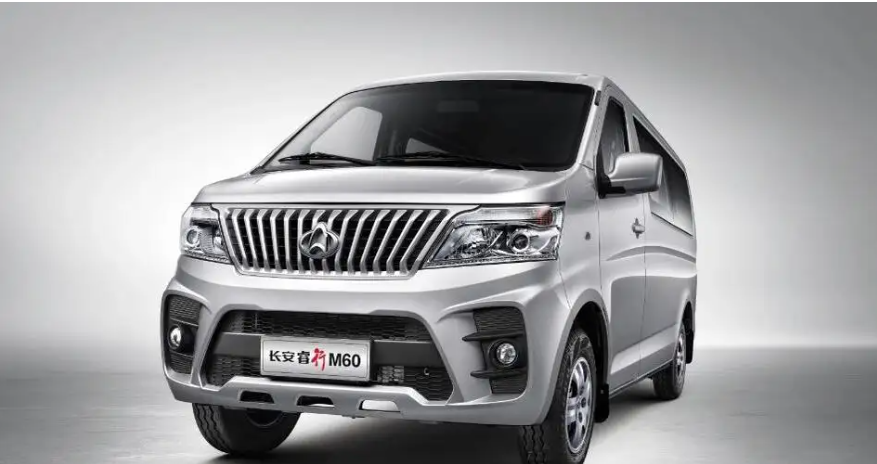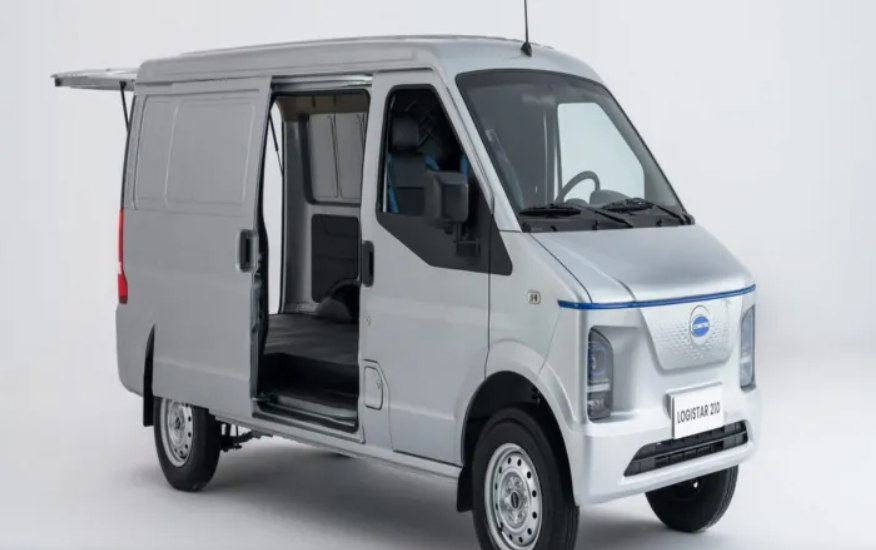The Environmental Revolution in Urban Delivery
Reducing Noise Pollution Through Silent Electric Vans
Electric vans are instrumental in reducing urban noise pollution, operating significantly quieter than traditional diesel vehicles. Their silent operations not only contribute to a peaceful urban environment but also enhance the mental well-being of residents exposed to constant traffic noise. According to a study by the European Environment Agency, reduced noise levels can lead to improved sleep and reduced stress levels, vastly benefiting mental health in city populations. Real-world implementations, such as those seen in Amsterdam's city logistics, showcase a notable improvement in residential satisfaction, with a decrease in noise complaints following the introduction of electric van fleets for deliveries.
Cutting Emissions for Cleaner City Air
Electric vans offer substantial emissions benefits by producing zero local tailpipe emissions. This shift is pivotal for improving urban air quality, reducing CO2 output and other harmful pollutants. The International Energy Agency (IEA) reports that urban areas that have adopted electric vehicle fleets have observed a measurable decrease in overall city emissions. London, for example, is at the forefront with its ULEZ (Ultra Low Emission Zone) initiative, leveraging electric vans to cut down urban vehicle emissions significantly, thus fostering a healthier city atmosphere.
Public Health Improvements Driving Community Acceptance
The adoption of electric vans in urban logistics is directly linked to better public health outcomes. By improving air quality and reducing noise levels, these vehicles significantly enhance the livability of crowded urban spaces. The American Lung Association highlights that decreased vehicular emissions correlate with reduced rates of respiratory illnesses such as asthma. This correlation, coupled with the growing public support for sustainable delivery methods, is leading to broader community acceptance and demands for clean urban logistics solutions. As more cities embrace electric vans, they not only promote environmental sustainability but also play a crucial role in community planning and development that prioritizes public health.
Overcoming Infrastructure Challenges with Smart Solutions
Micro-Depots: The New Urban Charging Hubs
Micro-depots are emerging as a crucial component in enhancing the logistics landscape for electric vans. These compact charging hubs are strategically positioned within cities to streamline the process of maintaining electric vehicle fleets. They offer localized charging solutions, which are significantly more convenient than larger, centralized stations. For example, cities like Oslo and Hamburg have successfully integrated micro-depots, transforming urban logistics by making charging more accessible and reducing downtime for vehicles. This setup not only boosts logistics efficiency but also supports the growing demand for electric vans by minimizing the need for extensive travel to charge stations.

Scaling Charging Networks for High-Density Logistics
The expansion of charging networks is critical to accommodate the increasing number of electric vans operating in dense urban environments. To achieve this, there is a growing necessity for expansive strategies that leverage partnerships between municipal governments and private sectors. By collaborating, these entities can deploy more charging stations efficiently and cost-effectively. For instance, partnerships have resulted in a marked improvement in charging infrastructure across major cities, leading to higher operational efficiency for companies. Logistics firms have reported significant gains, with enhanced charging networks directly correlating to lower waiting times and increased delivery capabilities.
Zero-Emission Mandates Reshaping Fleet Compositions
Zero-emission mandates are playing a pivotal role in transforming fleet compositions within logistics companies. Governments worldwide are setting ambitious targets to reduce air pollution and carbon footprints, which, in turn, compel these businesses to adopt electric vans. For instance, cities like London and Paris have implemented stringent zero-emission zones where only electric vehicles are permitted, significantly pushing logistics providers to incorporate more electric vans into their fleets. This shift not only addresses environmental concerns but also aligns with the broader sustainability strategies adopted by many companies. By enabling cleaner transportation, these mandates aim to improve urban air quality while ensuring a sustainable future for last-mile delivery operations.
The long-term implications of these mandates are numerous and significant. As more companies transition to electric fleets, urban air quality is expected to improve, contributing to healthier living environments. Furthermore, the increased demand for electric vans supports advancements in technology and infrastructure development, creating a positive feedback loop that further accelerates the adoption of sustainable solutions. Ultimately, the widespread implementation of zero-emission mandates promises a more resilient logistics sector that prioritizes environmental health alongside operational efficiency.
Urban Access Rules Favoring Electric Last-Mile Vehicles
Urban access regulations that emphasize the use of electric vehicles for last-mile delivery are reshaping logistics strategies in congested cities. These rules often grant preferential access and parking privileges to electric vans, which streamline delivery processes and reduce logistical challenges in dense urban environments. For instance, cities like Oslo and Hamburg have pioneered such legislative measures, effectively facilitating smoother logistics operations and increasing the efficiency of last-mile delivery services.
However, adapting to these regulations presents both challenges and opportunities for logistics companies. On one hand, the transition to electric vehicles involves upfront costs and operational adjustments. On the other hand, companies that successfully implement these changes benefit from reduced emissions, lower operating costs, and improved community relationships. Embracing electric last-mile vehicles not only meets regulatory requirements but also represents a strategic move toward sustainability that enhances a company's brand reputation and customer satisfaction in the long run.
Operational Efficiency Gains for Logistics Companies
Lower Maintenance Costs of Electric Drivetrains
Electric drivetrains offer significant maintenance advantages over traditional combustion engines, leading to substantial cost savings for logistics companies. Electric vehicles (EVs) typically have fewer moving parts, reducing wear and the risk of mechanical failure. As a result, maintenance costs can be significantly lower. For instance, reports from logistics firms indicate a reduction in downtime and maintenance expenses, making the switch to electric vans economically beneficial. These cost savings enable companies to reallocate resources to other areas, such as enhancing customer service or investing in new technologies, thereby improving overall operational efficiency in urban logistics settings.
Predictive Analytics in Battery Management
Predictive analytics plays a crucial role in optimizing battery life and performance for electric vans. By leveraging data-driven insights, logistics companies can anticipate battery degradation and implement timely interventions to maintain fleet reliability. This technology aids in extending battery lifespan, minimizing unexpected downtimes, and reducing costs associated with battery replacements. Companies implementing advanced battery management systems have reported enhanced operational efficiency and cost reductions. Such systems provide real-time data on battery health and performance, allowing for proactive maintenance strategies that improve the reliability of urban logistics operations.
Payload Optimization Through Lighter EV Designs
Innovations in electric vehicle design have led to the development of lighter models, resulting in improved payload capacity for logistics companies. By reducing vehicle weight, these designs enhance the efficiency of last-mile deliveries, particularly in congested urban areas. For example, some electric vans now boast weight reductions that translate into increased payload capacities, allowing companies to transport more goods per trip. Successful implementations of lightweight electric vans have demonstrated notable operational improvements, offering a competitive advantage in urban logistics by maximizing payload without compromising the efficiency or sustainability of urban freight operations.
The Silent Advantage: Night Deliveries and Traffic Optimization
Unlocking Off-Peak Delivery Windows
Conducting deliveries at night using electric vans unlocks multiple advantages, notably reduced traffic congestion and noise pollution. Delivering packages during off-peak hours can help businesses optimize logistics operations while enhancing customer satisfaction. For instance, night deliveries help in quickly navigating through city roads that are less crowded, cutting delivery times significantly. A study showcases that logistics firms experienced a 30% increase in delivery efficiency during these hours. Additionally, off-peak logistics operations can lead to more strategic urban traffic patterns and planning, making them a valuable strategy for urban logistics.
Live Traffic Data Integration for Route Intelligence
Integrating live traffic data into fleet operations allows logistics companies to optimize delivery routes effectively. This data-driven approach enhances urban logistics by offering significant time and fuel savings. By utilizing real-time traffic solutions, logistics teams can avoid delays, thus improving the efficiency of electric vans as they navigate urban landscapes. Technology firms such as Waze and Google Maps provide solutions that help logistics teams better manage their fleet routes, ensuring deliveries are both timely and energy-efficient. This kind of integration has been shown to decrease delivery times by up to 20%, showcasing its transformative impact on urban delivery services.
Future Projections: Electric Vans Reshaping Cityscapes
Urban Planning Around EV-Centric Logistics Hubs
Urban planners are significantly redesigning city infrastructures to accommodate electric van logistics hubs, which facilitate efficient deliveries. By prioritizing EV-centric logistics, cities aim to reduce congestion and improve environmental sustainability. Many urban spaces are being transformed into smart logistics zones, emphasizing green infrastructure and electrification. For example, cities like Amsterdam and Copenhagen are at the forefront, integrating innovative designs that highlight electric vehicle charging stations and greener distribution channels, thereby enhancing urban logistics. These developments not only contribute to sustainable urban growth but also spur positive impacts on local economies and communities by boosting commerce and creating jobs tied to improved logistics.
Smart Grid Synergy with Commercial Fleets
There is a growing synergy between electric van fleets and smart grid technologies, crucial for optimizing energy consumption. By integrating fleets with smart grids, commercial operators can achieve significant reductions in energy costs and ensure more reliable operations. The enhancements from a smart grid allow electric vans to charge during off-peak hours, reducing stress on the power network and lowering costs. Cities like Oslo and San Francisco serve as examples, where municipalities have successfully integrated smart grids into their electric vehicle initiatives, leading to efficient energy use and cost savings for fleet operators.
Long-Term Sustainability Metrics in Municipal Contracts
Municipalities are increasingly incorporating long-term sustainability metrics into their contracts, reflecting a commitment to greener delivery services. Various policies now emphasize sustainable practices, holding contractors accountable for environmental performance. For instance, London has implemented specific green requirements in its contracts to ensure service providers meet particular sustainability targets. While evaluating these metrics presents challenges, including data collection and transparent reporting, their importance is undeniable. Effective tracking can promote more responsible logistics practices, ultimately benefiting both the environment and the urban communities municipalities serve.
FAQ
1. What benefits do electric vans offer in urban environments?
Electric vans significantly reduce noise and emissions, improve public health, and enhance community livability by offering cleaner and quieter alternatives to traditional vehicles.
2. How are micro-depots supporting the electric van infrastructure?
Micro-depots provide localized charging hubs that streamline the charging process for electric fleets, boosting logistics efficiency in urban environments.
3. What role do zero-emission mandates play in fleet transformation?
Zero-emission mandates compel logistics companies to adopt electric vans, promoting environmental sustainability by reducing urban air pollution and supporting cleaner last-mile delivery solutions.
4. How do urban access regulations favor electric vehicles?
These regulations provide preferential access and parking privileges for electric vans, facilitating smoother and more efficient last-mile deliveries in congested urban areas.
5. Why are predictive analytics important for electric vans?
Predictive analytics help optimize battery performance and lifespan by enabling logistics companies to proactively manage fleet reliability and reduce maintenance costs.
6. How can night deliveries benefit logistics operations?
Night deliveries reduce traffic congestion, optimize routes, enhance customer satisfaction, and improve delivery efficiency during less crowded off-peak hours.
Table of Contents
- The Environmental Revolution in Urban Delivery
- Overcoming Infrastructure Challenges with Smart Solutions
- Zero-Emission Mandates Reshaping Fleet Compositions
- Urban Access Rules Favoring Electric Last-Mile Vehicles
- Operational Efficiency Gains for Logistics Companies
- The Silent Advantage: Night Deliveries and Traffic Optimization
- Future Projections: Electric Vans Reshaping Cityscapes
- FAQ

